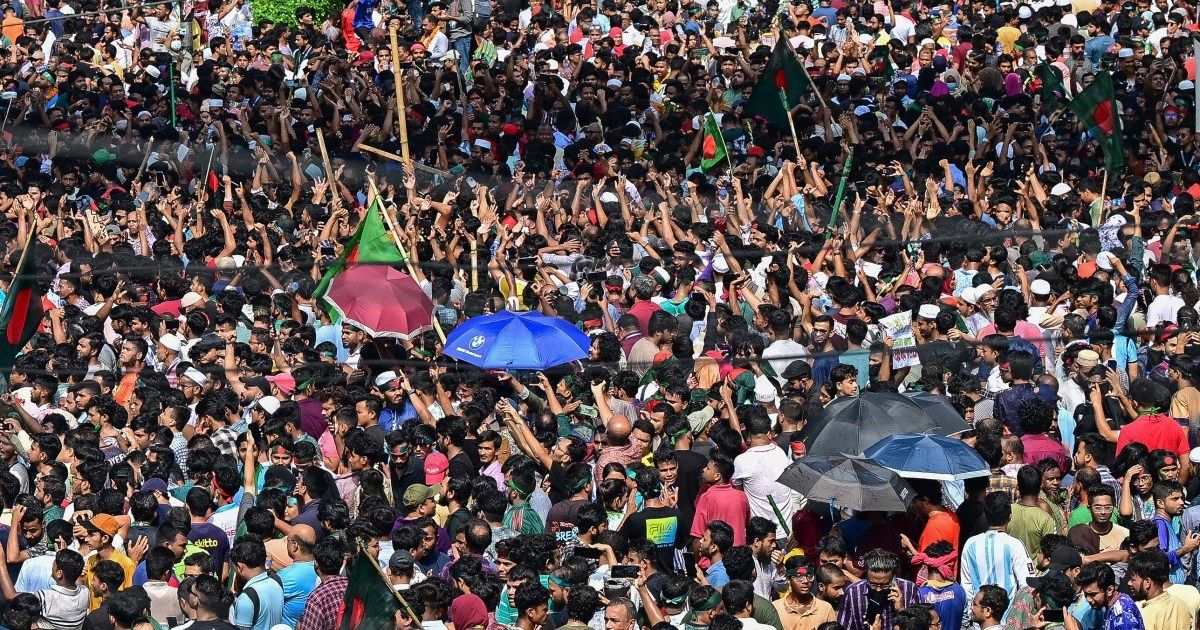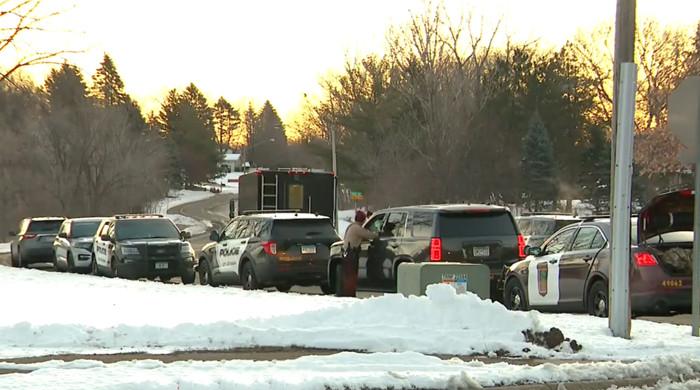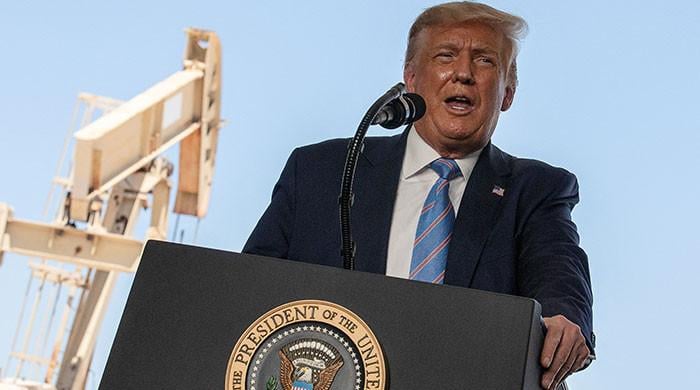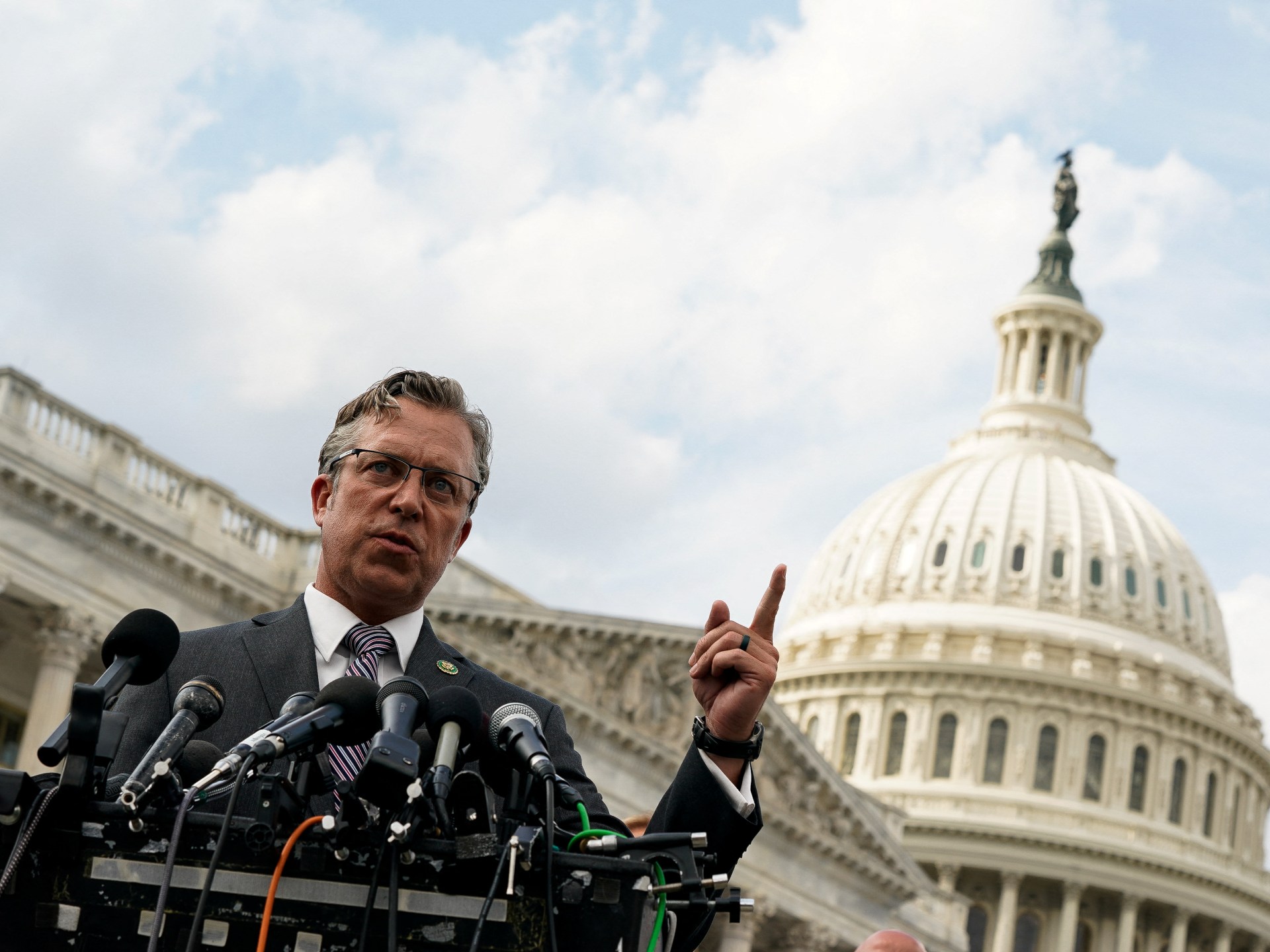Leading organisers of student protests in Bangladesh have said Nobel Peace Prize laureate Muhammad Yunus should head an interim government after Prime Minister Sheikh Hasina resigned and fled the country.
Nahid Islam, a 26-year-old sociology student who led a protest movement against government job quotas that turned into a nationwide uprising against the administration, said in a video posted on social media that Yunus had agreed to take over.
“We want the process to start tomorrow morning,” Islam said Monday evening. “We urge the president to take steps as soon as possible to form an interim government headed by Dr Yunus.”
Protest organizers were scheduled to meet with military officials on Tuesday, the military said in a statement.
Islam said the students would not accept a government run by the military.
“We have given our blood, we have been martyred and we have to fulfil our promise to build a new Bangladesh,” he said.
“No government other than the one proposed by the students will be accepted. As we have said, no military government, no government supported by the military, no government of fascists will be accepted.”
Yunus, 84, was awarded the Nobel Peace Prize in 2006 after pioneering microcredit. Known as the “banker of the poor,” he faced corruption charges in Bangladesh and was put on trial during Hasina's government, but he maintained the charges against him were politically motivated.
A spokesman for Yunus said he had accepted the students' request to be an adviser to the interim government, Reuters news agency reported. The Nobel laureate would return to Bangladesh “immediately” after a minor medical procedure in Paris, the spokesman said.
Reporting from Dhaka, Al Jazeera's Tanvir Chowdhury said calm appeared to have largely been restored in the capital on Tuesday, with the Students Against Discrimination movement calling for calm, despite some lingering tensions.
Chowdhury said the movement would propose more names on Tuesday morning and that its “key demand” had been clearly formulated as non-negotiable. “Unless those names are accepted, students could take to the streets again,” he said.
Following Hasina's ouster on Monday, army chief General Waker-Uz-Zaman said he was taking temporary control of the country as soldiers tried to contain growing unrest.
He said he had held talks with leaders of major political parties, excluding Hasina's long-ruling Awami League, and announced that an interim government would rule Bangladesh.
He also vowed to investigate the deaths of at least 135 people in Bangladesh since mid-July, in one of the country's worst bloodshed since the 1971 war of independence. “Keep faith in the military. We will investigate all the killings and punish those responsible,” he said.
Mohammed Shahabuddin, the country's leading figure in the country, announced that the interim government would hold new elections as soon as possible.
He said it had been “unanimously decided” to immediately release the chairwoman of the opposition Bangladesh Nationalist Party (BNP) and Hasina’s nemesis, Begum Khaleda Zia, who was convicted in a corruption case in 2018 but was transferred to a hospital a year later as her health deteriorated. She has denied the charges against her.
UN High Representative for Human Rights Volker Turk said the transition of power in Bangladesh must be “in line with the country’s international obligations” and “inclusive and open to the meaningful participation of all Bangladeshis.”
The protests began peacefully last month when frustrated students demanded an end to a quota system for government jobs that they said favoured those with connections to Hasina's Awami League party.
They then morphed into an unprecedented challenge for Hasina amid a harsh police crackdown, highlighting the extent of the country's economic crisis.
On Monday, protesters defied a military curfew to march into the centre of the capital, setting fire to Hasina's official residence and gathering outside the parliament building, where a banner reading “justice” hung.
Mobs also ransacked Hasina's ancestral family home, now a museum, where her father, Sheikh Mujibur Rahman, the country's first president and independence leader, was assassinated.
Meanwhile, Hasina landed at a military airfield near New Delhi and met India's national security adviser Ajit Doval, according to Indian media reports, which also said she was taken to a safe house and was likely to travel to the UK.
Indian media reported that the government will hold an emergency meeting in Parliament on Tuesday to discuss the situation in Bangladesh.
Hasina, 76, had been in power since 2009 but was accused of rigging an election in January and then saw millions of people take to the streets over the past month demanding her resignation.












